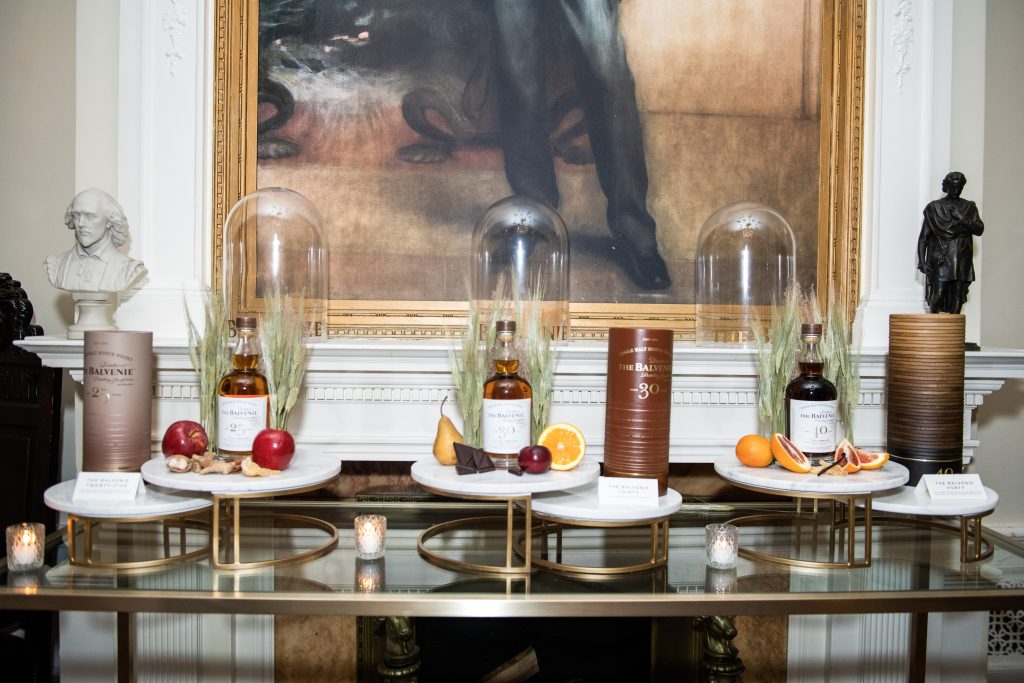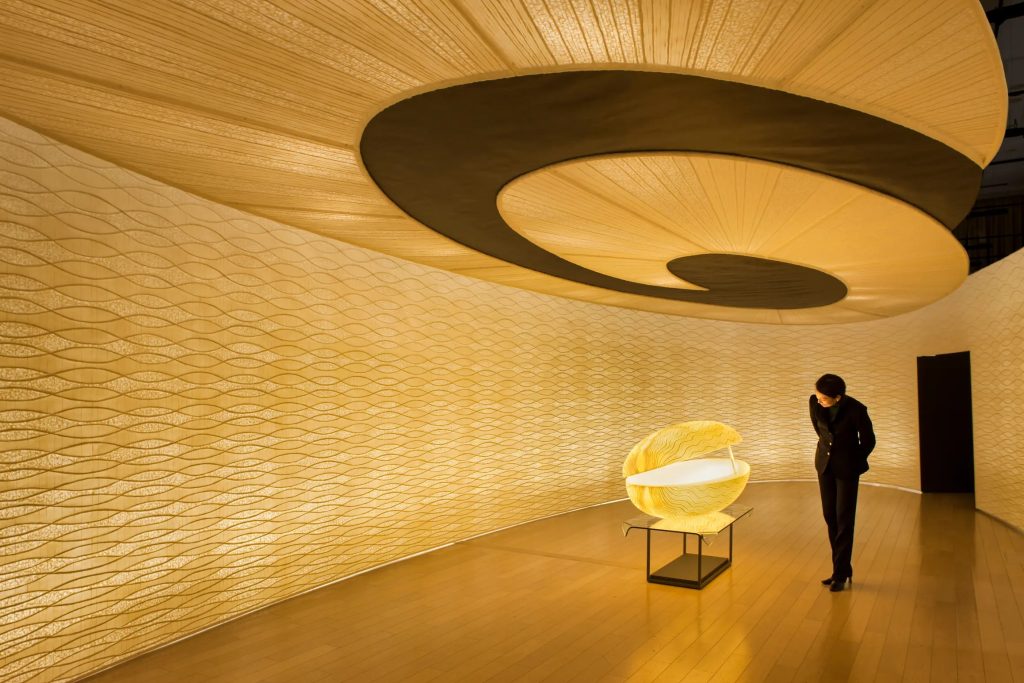Questlove on His “Quest for Craft” Series With The Balvenie
The multidisciplinary artist tells us about creativity, curiosity and making Fran Lebowitz smile

With Quest for Craft, Questlove‘s ongoing interview series for The Balvenie Single Malt Scotch Whisky, the musician, producer, DJ and founding member of The Roots continues to inspire. Each episode the legendary artist speaks with individuals who have spent immense time, energy and effort honing their own art. The themes of all these conversations are creativity and curiosity—two driving factors behind COOL HUNTING, as well.
For the second season, Questlove conversed with writer and NYC icon Fran Lebowitz about place, ballet dancer Misty Copeland about the nature of perfection, musician and producer Mark Ronson about expression, and chemistry with comedian Kenan Thompson. Craft was the unifying factor in all discussions—and each was punctuated with thoughtful notes from people like Samir S Patel (the editor in chief of Atlas Obscura) and astronaut Leland D Melvin. To learn more about the series’ return, we spoke with Questlove about his own ideas, values and beliefs around craft, curiosity, creativity and more.
You’re a multidisciplinary artist, a creative person like all of your interviewees on Quest for Craft. What is the common theme or the through line for you regarding all of your different creative expressions?
It’s almost like the air I breathe. Previously and even now, people are like, “Oh man, you’re the professor. You’re the all-knowing czar of breakbeats” or whatever it is. Or they’ll get shocked if I don’t know something—if I haven’t heard a song before. But I keep telling them, “Yo, I never came into this thing saying that I was the all-mighty, all-knowing, but I did come into this thing being the all-curious person. I’m always going to ask questions. I only hang with people that can teach me things. That’s the one thing I insist on. My group of friends are like a basketball team—the 11 of them have all very specific sets of knowledgeable skills. So I think I’m just naturally drawn to creatives and those who are curious.
The Roots formed in the mid ’90s, and you have been making music and DJing for many, many years. Do you think about your audience as those who have followed you for a whole long time or are you thinking about how to resonate with new groups of people?
That’s the million dollar question: do you evolve and grow with your audience or do you circulate and kind of are you a seasonal bike? You know,—are you chronological or are you seasonal? That’s the big question. In some areas, I am one and in some areas I am the other.
Here’s an example: November is when I’ll start doing the numbers. For instance, this November, Beyonce’s “Crazy In Love” is going to be 20 years old. So what does that mean? Previously, that song was almost like ringing a fire alarm inside of a building—going to get everyone’s attention. That was my emergency brake, no matter what. Those opening horn lines are gonna absolutely destroy. And then I’ve seen songs that have had that effect kind of lose their luster in 25 or 30 years. It goes from losing your mind to like, “Oh, I remember that in high school.” So often with songs I’m calculating—usually around November, December—what songs are now 10 years old? I feel like the sweet spot for anyone that loves music is whatever was hitting between your seventh grade year to your last year of college. That’s your sweet spot. And I have to figure out, just by looking at my crowd, who were you listening to in high school?
I feel like the sweet spot for anyone that loves music is whatever was hitting between your seventh grade year to your last year of college
But then on the other hand, as a musician—especially with The Roots right now—it’s a “what to do” situation. Right now in hip-hop, the culture is drill music. It’s weird to say trap music is now old school, EDM is old school. Now it’s drill music. So, to me, the question is could we effectively jump on that bandwagon and do it? We could. However, the mountain I really want to climb is, I want to see if we can successfully serve the audience that grew up with us. Because always in music, especially in hip-hop, there’s this rule that it has to be a young person’s game and once you turn 28, 29, it’s geriatric time. For me, no one’s ever solved that mystery. And I think it’s possible, especially in this case where I have an MC who just turned 49 like two days ago and is rhyming and more expansive and more communicative now at 49 than he was when he was 14.
In some cases I want to go with the flow and sort of circle again and reach another generation and with some of my creative things, and some other places I actually want to mature and grow old with my audience. It really just depends on the project.
How do you maintain your integrity when when doing commercial projects like this, and what made this endeavor appealing to you?
I think one always has to maintain integrity no matter what they do. But for me, it kind of has to fall in line with what I’m about in terms of me being a creative. I think half the time people don’t know that everything I do has to have an educational element to it. No one wants to be hit over the head with any sort of lesson. As far as the partnership with The Balvenie, I just said that I wanted a platform that allows me to discuss my creativity and my curiosity.
Not to mention, I say this jokingly, but I’m actually serious: I’ve been in this industry for 32 years so I’m like friends with everyone that’s a creative— that’s my flock. It’s just that I create these platforms—be it writing those books or the Questlove Supreme podcast and now Quest For Craft—I use it as an excuse to not weird out my friends when I nerd out. Because even way before I had these platforms, maybe the first four years of my career, a lot of them were weirded out like, “OK Amir, can you just talk to me like a regular human being and not like a journalist?” For me, I think that I choose platforms that will allow me to sort of satisfy my curiosity jones, if you will.
Of the four interviews in this new chapter of the series, were there any big moments where your curiosity was satisfied?
Of Mark, Kenan, Fran and Misty, Misty was the one that I knew the least—but we have our friendship with Prince in common, so I’d see her around but I never got a chance to really know her. One of the things I was shocked at was just how late she started—not late, but she started at 13 which is damn near geriatric level in ballet. Her first training ground was an asphalt basketball court. So it’s almost like the story of the Hoosiers where someone’s practicing on mud in the snow and it’s such a task—she didn’t have an advantage. And yet, she’s a maverick. Just hearing about her development.
I also found about how much spontaneous movement—I didn’t know that that was allowed in ballet, I thought ballet was about following a very specific, choreographed process. And she was telling me, “No, I got haters trying to buck shots in the audience saying ‘You didn’t do the pirouette like Isadora Duncan did 30 years ago when she did Swan Lake!'” She’s right now leading a quiet revolution in the world of ballet that I don’t think we all know about.
But probably my favorite moment, having been friends with Fran for about 10 years, you know what you’re getting with Fran—it’s gonna be a big bowl of sarcasm and dry wit and her go-to cynical, nonchalant punchlines… Man, for me to put Fran Lebowitz in a vulnerable, genuinely gleeful, happy space for 30 seconds. You already know that’s impossible to achieve, so for good 30 seconds, I saw her teeth. I did it.
Images and videos courtesy of The Balvenie












